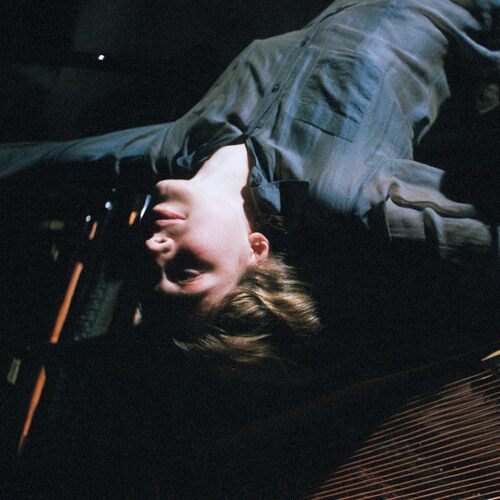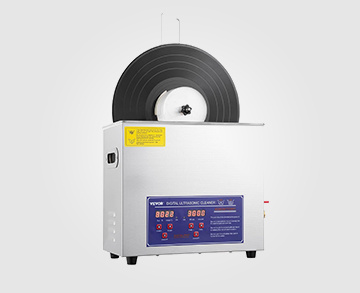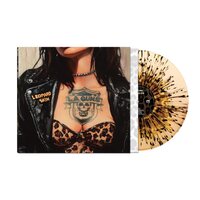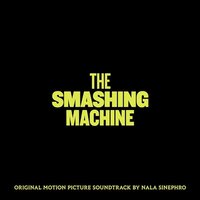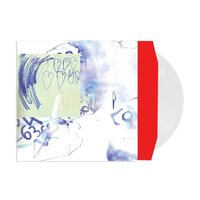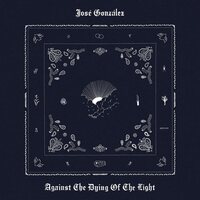There's no mistaking the sultry lilt of Eliana Glass-alternating between an offbeat, searching quality and her poignant, awe-inspiring range. Her piano playing also possesses this stirring push and pull between the otherworldly and painfully human-each melody it's own unique, aching realm. Glass' sparse, meditative music often captures, in her words, the "condensation of everyday life," an image that suits the bittersweet, ephemeral, and abstract nature of her work. Glass' debut album, E, arrives via Shelter Press, and not only is it a tender portrait of her lifelong relationship with the piano, it's also a distillation of entire lifetimes into song.The Australia-born, Seattle-bred, and New York-based singer-songwriter and pianist learned to sing and play piano by ear as a child. Glass took an immediate liking to her parents' piano, frequently hiding underneath it and letting her imagination run wild. "I felt protected under the wooden beams, and I remember looking up at the legs, wires, and foot pedals and seeing the instrument in a new way-everything suddenly everted," Glass recalls. "I like to think about E as recalling this memory in sound." Glass spent years learning jazz standards, and she also learned to sing in Portuguese after falling in love with Brazilian music. Glass studied jazz voice at The New School under teachers Andrew Cyrille, Ben Street, Jay Clayton, and Kris Davis, and she began singing in piano/bass/drums quartets around New York City. In the latter half of her studies, she started writing her own songs inspired by boundary-pushing artists like Ornette Coleman, Asha Puthli, and Jeanne Lee. During the height of the pandemic, she lived with her brother Costa (who now records as ifiwereme) and felt drawn to the piano again, and they wrote songs together for the first time. Then, over a four-year span, Glass teamed up with Public Records co-founder and producer Francis Harris (Frank & Tony, Adultnapper) and engineer Bill Skibbe (Shellac, Jack White) to record what became E in various studios in Nashville, Brooklyn, Memphis, and Benton Harbor, Michigan.Glass' experimental, improvisational works evoke the sensual minimalism of Annette Peacock, the joyful mysteriousness of Carla Bley, and the wistful intimacy of Sibylle Baier. Her reverence for leftfield jazz and free improv greats is evident, but it's always filtered through her signature nascent, naturalistic sound. "Dreams" is a majestic take on Peacock's spine-tingling 1971 track of the same name, "Sing Me Softly the Blues" is a minimal, arresting reimagination of Bley's jazz standard with lyrics adapted by Norwegian vocalist Karin Krog, and "Emahoy" is a languorous tribute to Ethiopian pianist, composer, and nun Emahoy Tsegué-Maryam Guèbrou and her 2006 compilation Éthiopiques. Glass' music rests on a tactile, mercurial sound and her vocal brawn and versatility. E's slippery stabs of double bass and drums tickle the ear canal and accentuate the percussiveness of her distinctive low voice, which blends sonorous, androgynous poise with fluttering delicacy. E also has an enigmatic electronic bent that heightens the blurry emotions of Glass' songwriting. From background hiss and windy vocals to kaleidoscopic synths, these subtle, tasteful adornments often came from specialized analog equipment: a 1960s underground echo chamber, a Cooper Time Cube (essentially, the hardware equivalent of processing audio through a garden hose), and a 1940s AEA ribbon microphone. But that doesn't mean E sounds dated-Glass' songs bloom with a forward-thinking spirit and ultimately function as vehicles for her heady emotions and fragmented memories and dreams.
- 1. All My Life
- 2. Shrine
- 3. Good Friends Call Me E
- 4. Flood
- 5. Human Dust
- 6. Solid Stone
- 7. Dreams
- 8. Sing Me Softly the Blues
- 9. On the Way Down
- 10. Song for Emahoy
- 11. Da
